First Treasurer Jim Chalmers misled the Australian public by claiming that the average full-time worker was $3,700 better off in the first year of the Albanese government:

However, ABC Fact Check labelled Chalmers’ claim “misleading”, pointing out that his claim does not take inflation into account, which outstripped the growth in earnings by six percentage points over the year to 30 June as measured by the consumer price index (CPI).
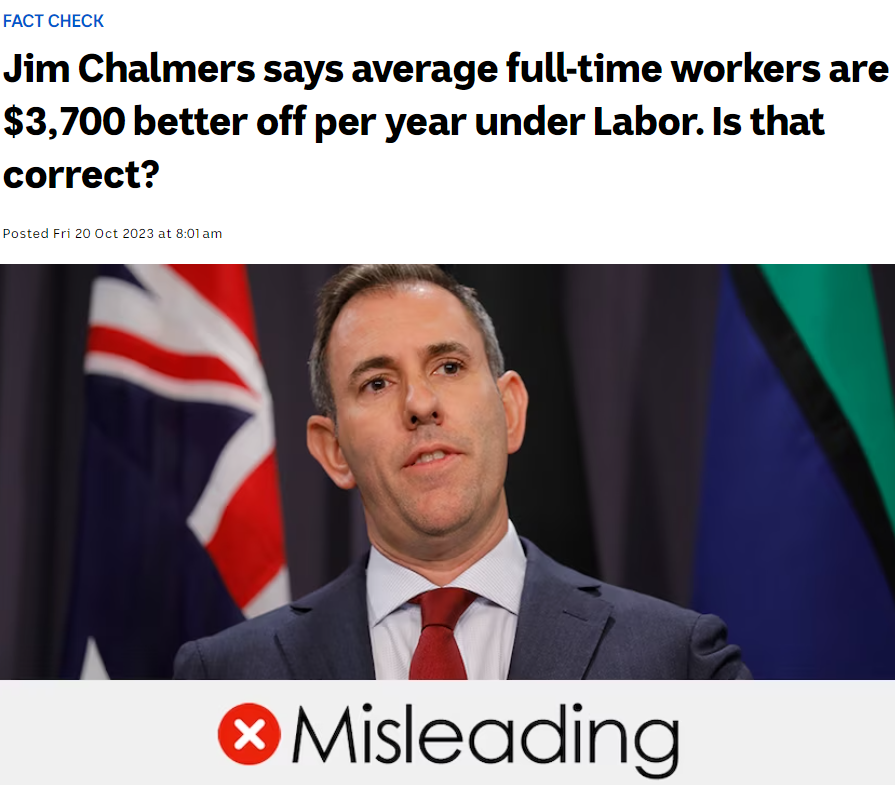
In reality, average full-time wages fell in real terms by $2,012.92 over Labor’s first year in office:
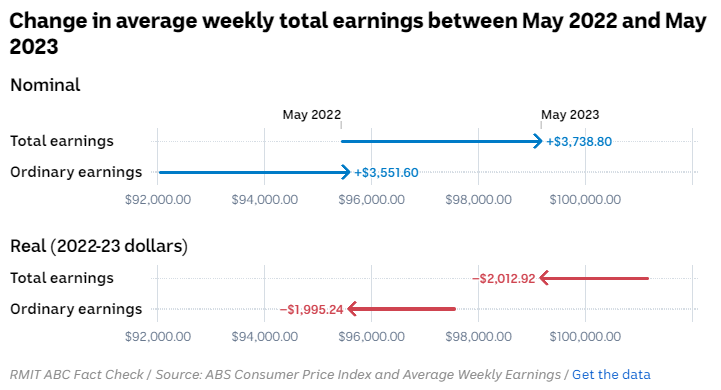
Source: ABS Fact Check
Moreover, if average earnings are adjusted to the Australian Bureau of Statistics’ (ABS) selected cost of living indexes (SCLIs), which are designed to measure inflation in a more targeted way, then purchasing power of total wages went backward by $5,470.40 a year, according to Fact Check:
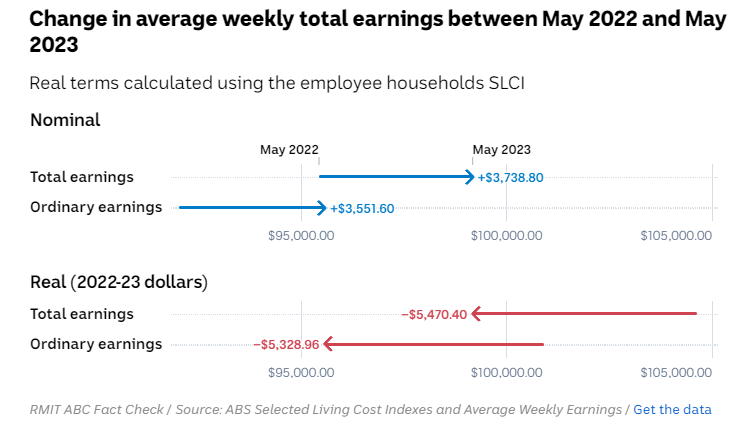
Source: ABS Fact Check
“Earnings have gone backwards, it’s as simple as that”, David Hayward, an emeritus professor of public policy at RMIT University, told Fact Check.
The below chart tells the tale. Australian real wages have plummeted to March 2009 levels after falling 7.5% since June 2020:
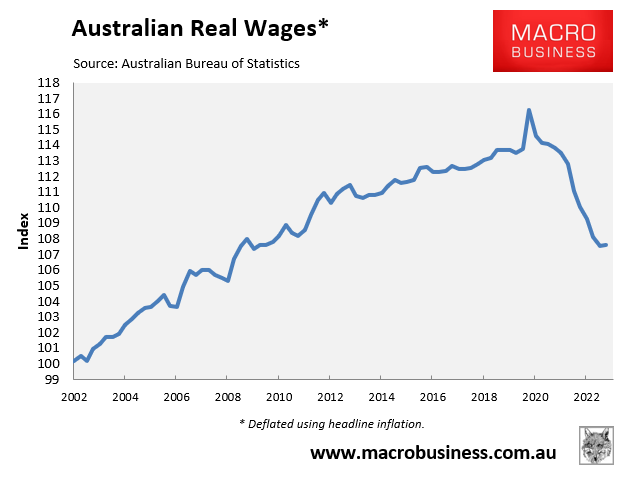
On Monday, Prime Minister Anthony Albanese boasted that Labor has created 560,000 jobs since it was elected in May 2022:

Of course, Albo didn’t bother to mention that Australia’s population aged 15-plus has expanded by 770,000 since May 2022, thanks to unprecedented levels of net overseas migration:
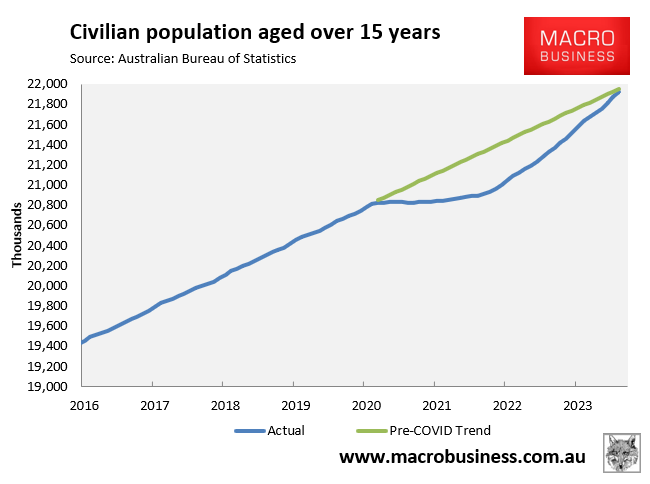
Heck, Australia has already caught up to the pre-Covid population growth trend.
Thus, Albo’s Labor has basically ‘created’ 560,000 jobs for migrants – and not enough to keep the labour underutilisation rate steady:
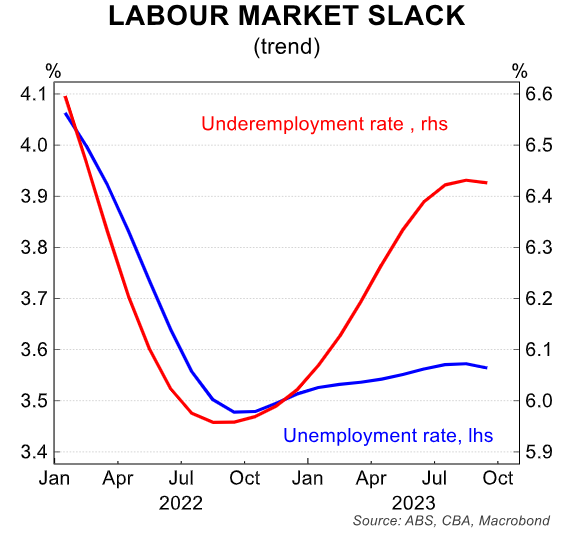
Meanwhile, the lack of housing to support Albo’s extreme immigration has pushed the rental vacancy rate to record lows, which has pushed rents into the stratosphere and forced Australians to live group housing or on the streets:
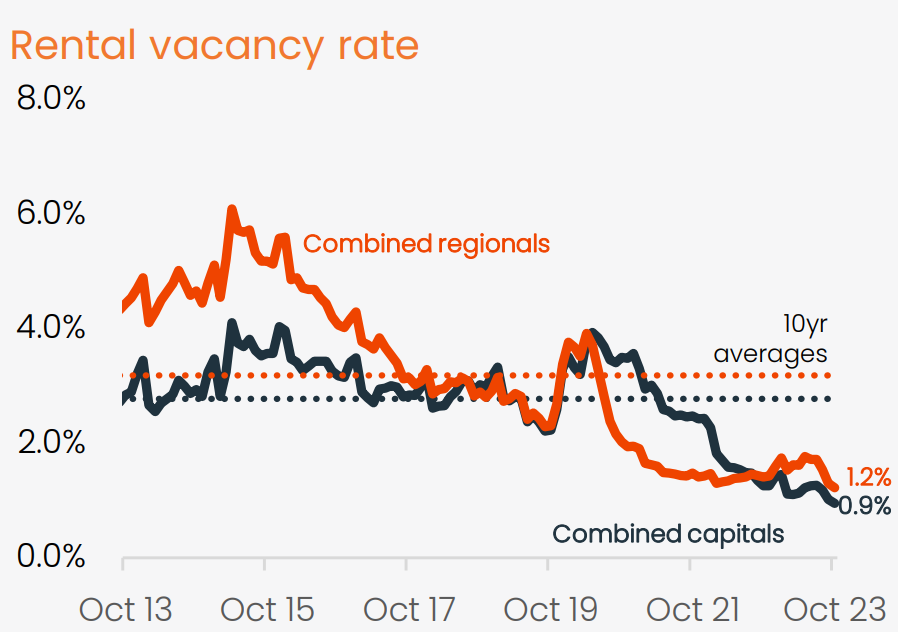
Source: CoreLogic
He’s a great guy, Albo. Always looking out for the working class by making them compete harder for jobs and housing with hordes of imports.

